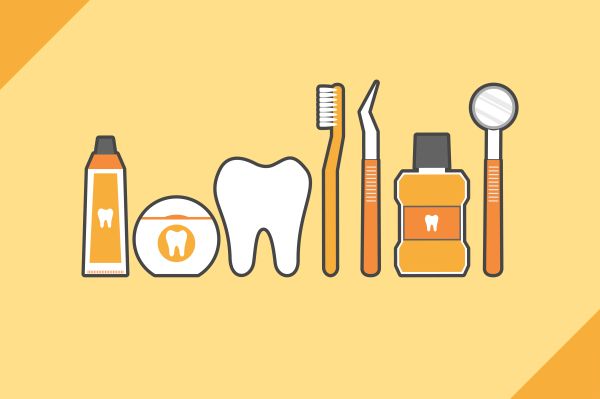Can My Toothpaste Choice Damage My Dental Crown?

You may be wondering if your toothpaste choice can damage your shiny new dental crown. With proper care, dental crowns can last for years or even a lifetime, depending on their materials. Metal alloy crowns are particularly durable, and porcelain crowns are slightly more susceptible to damage.
After going through the hassle of getting a crown fitted and placed, you definitely do not want poor oral hygiene to be the reason the crown fails. Crowns do not make your teeth invincible, after all. How you clean your crowned tooth is vital to its preservation.
What is the best toothpaste for dental crowns?
Caring for dental crowns, bondings or veneers is similar to caring for your natural teeth. (It may even be easier, but that does not mean there is no responsibility at all!) Crowned teeth are not impervious to harm and should be brushed and flossed daily. Your dentist may prescribe you a strong fluoride toothpaste if you are prone to dental decay. Doing so will help preserve the enamel on the areas of your tooth that remain. Damage to the underlying tooth is one of the main reasons crowns need to be replaced.
Other than that, there is no specific type of toothpaste you have to use for dental crowns. Most general kinds of toothpaste are fine, with the possible exception of whitening toothpaste.
Can whitening toothpastes damage crowns?
Whitening toothpaste may contain abrasives such as baking soda or activated charcoal. While occasional use of these kinds of toothpaste is usually harmless, persistent use can damage not only your crown or bonding but also your tooth enamel. If you want to use a whitening toothpaste, it is advised that you use it only once or twice a week and brush with gentler toothpaste the rest of the time.
How to brush dental crowns
How your brush your crowns is more important than the toothpaste you use. Stick to soft bristles, especially for electric toothbrushes. Scrubbing too hard with coarse bristles can erode the material of your crown, particularly ceramic or porcelain crowns. Hard bristles and forceful brushing can also damage healthy tooth enamel, putting you at risk of tooth decay. Brush gently in a circular motion, and rinse daily with a fluoride mouthwash to kill bacteria. Avoid alcohol-based mouthwashes, as these can weaken certain types of dental bondings.
Be extra careful if you are still wearing a temporary crown. Temporaries are not as strong as full crowns and can be easily popped off. Your dentist will give you special instructions on how to care for your temporary crown.
Keep your dental appointments
Once you have a crown, it is even more important that you keep up with regular dental visits. Your dentist will be able to spot potential tooth decay before it becomes severe. Schedule an extra appointment if you notice any pain or bad odors coming from your dental crown. Remember, crowns are not as strong as healthy teeth and cannot replace proper dental care.
Request an appointment here: https://www.carolinasmilesdentist.com or call Carolina Smiles Family Dental at (828) 974-3326 for an appointment in our Brevard office.
Check out what others are saying about our services on Yelp: Read our Yelp reviews.
Recent Posts
Dental bonding is a process that restores the functionality and attractiveness of a patient’s smile by applying a natural-looking substance to a tooth. Patients with cracks, decayed, chipped, or cracked teeth may benefit from the long-lasting composite material that is put on their teeth. The interesting part of dental bonding is that it needs little…
Your dentist might recommend dental bonding if you are unhappy with your smile. This article explains how long this restoration will last and what influences its lifespan. Whether you have had a tooth gap for years or have recently chipped a front tooth, even a little mistake will make you hesitate before smiling. However, before…
There is a brief window of opportunity in which an emergency dentist may be able to save a tooth that gets knocked out. The chances are better within 30 minutes after the injury and start to decrease after an hour, so prompt treatment is key. There are things you can do before seeing the dentist…
Dental bonding is a perfect idea to try if you require minor smile enhancements. Dental bonding is a fast, simple, and affordable way to enhance the appearance of your teeth while still protecting them from more damage if they have a chip or crack. This article talks about what makes dental bonding a great choice…


